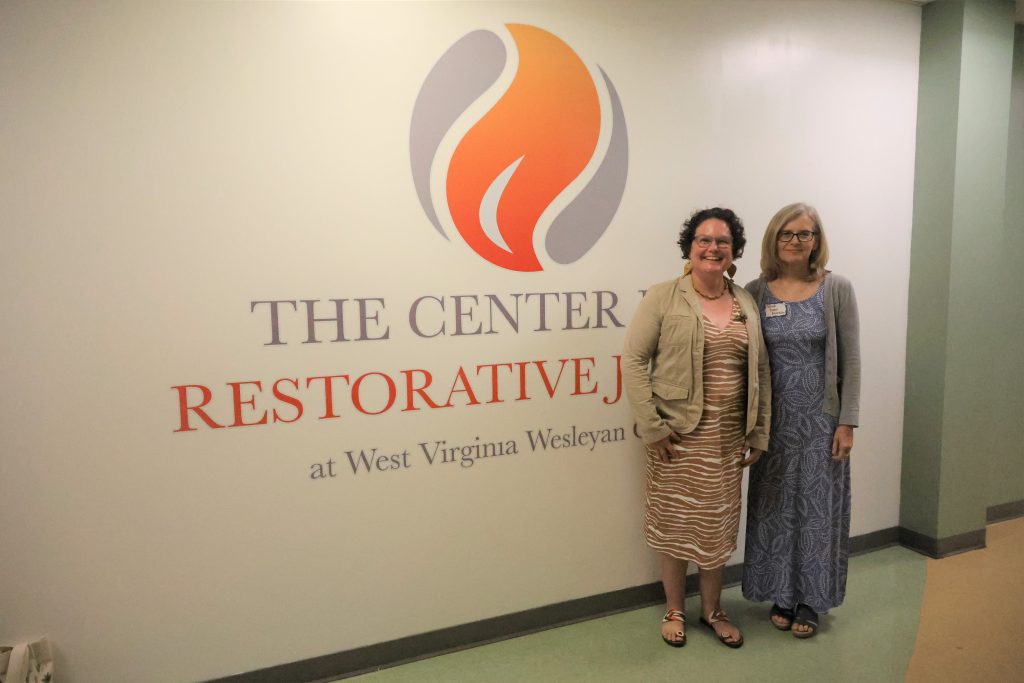about
News
BUCKHANNON, West Virginia –The Center for Restorative Justice at West Virginia Wesleyan College has been selected as one of five members of a new cohort of evidence-based granting-making by the One Foundation. The model for funding involves developing an intentional program design that will be researched in Phase 1 and implemented in Phase 2.
The $50,000 research and development grant will be used to conduct research into the need for a Day Center to provide services for unsheltered, housing- and food-insecure individuals and families in Clarksburg, WV. The funds will encourage and compensate student participation in the research conducted by the Center for Restorative Justice. Not only will collaboration between students and unsheltered stakeholders be an opportunity to build relationships between people from different backgrounds, this collaboration will allow students to actively engage in the research process, informing their approach to scholarship. Building relationships that allow students to understand barriers facing our unsheltered friends works toward cultivating the responsible citizenship promoted in the college’s Mission Statement.
For the past two years, Dr. Debra Dean Murphy ‘84, Dr. Jessica Scott, and Heather Schneider (founder of Free Meals Appalachia in Upshur County) have been serving meals and guiding circle conversations with socioeconomically marginalized members of the Clarksburg community. This work has taken place in close partnership with First United Methodist Church of Clarksburg, the United Way of Harrison and Doddridge Counties, and the Resilience Collaborative, all focused on preventing and responding to homelessness and the needs of those who are unsheltered. The One Foundation expressed excitement at supporting the work of Murphy and Scott in Clarksburg because the work on bridging divides between different stakeholders is part of what restorative justice can do. Working to bring the community together around problems that are in need of solutions embraces the values at the heart of the One Foundation’s funding model: peace, partnership, justice, wisdom, regeneration, and leadership.
On being awarded the funds, Dr. Scott said, “We see this incorporation into a program of funding as an opportunity to build collaboratively with other stakeholders in Harrison County and to gather insight into approaches that could be valuable in other counties as well.”
Murphy and Scott call the program they have implemented in Clarksburg, The Circle of Friends, a name generated by participants in the program themselves. The conversations, which are always accompanied by a meal, range in topics from “joy” and “community” to “boundaries” and “loss.” Through the exploration of those topics, individuals open up to the possibility of becoming a community through the relationships cultivated in the Circle.
Learning about their friends’ lives and volunteering occasionally with the winter warming shelter convinced Murphy and Scott that a space that people could regularly access is a pressing need for their friends in Clarksburg. Developing a day center project in conjunction with the launch of the Master of Arts in Clinical Mental Health Counseling (CMHC) Program on Wesleyan’s campus has enormous generative potential for both students and folks seeking services in Clarksburg. Murphy and Scott hope to collaborate closely with the Counseling Program to address therapeutic needs amongst the community in Clarksburg. The new Program Director of the CMHC Program, Dr. Jen Randall Reyes stated, “Community-based efforts such as this project from Drs. Murphy and Scott are one of the aspects I am most excited about aligning our counseling program with here at Wesleyan.”
In regard to bringing Wesleyan students into these efforts, Dr. Murphy noted, “It’s important to explore restorative justice in the classroom. But when students are actively engaged in the work, putting its convictions into practice, it is transformative for them and for the vulnerable persons they get to know as real human beings with struggles and joys not unlike their own.”
ABOUT WEST VIRGINIA WESLEYAN COLLEGE
West Virginia Wesleyan College (WVWC) is a private, four-year residential liberal arts and sciences college in Buckhannon, West Virginia. A tradition of excellence for more than 130 years, West Virginia Wesleyan is home to 14 Fulbright Scholars. The Princeton Review ranked Wesleyan as one of its 2023 Best Colleges in the Southeastern Region of the United States. U.S. News & World Report’s 2022-2023 Best College Rankings designated Wesleyan seventh in Best Value – Regional Universities (South). WVWC offers students more than 50 majors and 40 minors; graduate programs in athletic training, business administration, creative writing, nursing and clinical mental health counseling; 20 NCAA Division II athletic programs; multiple performing arts groups; and more than 50 organizations. Founded in 1890, the College is closely affiliated with the United Methodist Church and abides by the Wesley doctrine that emphasizes service to others. For more information, visit wvwc.edu.


